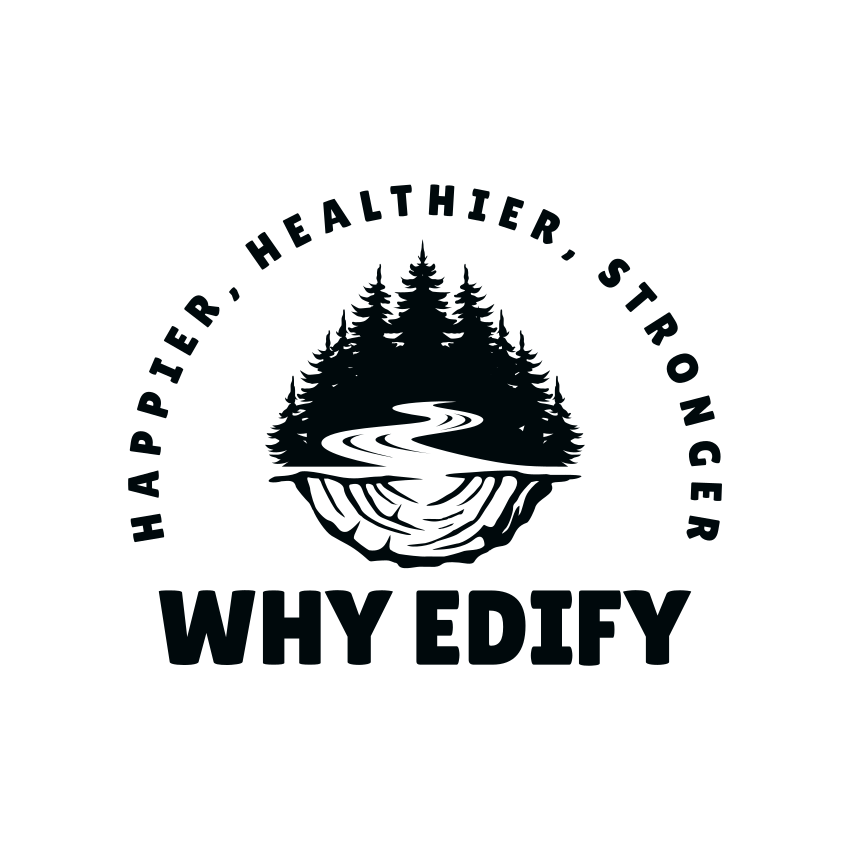Old School
Topics for this week include solid classroom management, a return to pen a paper assessments, and writing to prevent burnout.

As an Amazon Associate, I earn from qualifying purchases. This page contains affiliate links. This helps support Why Edify. Thank You! Read more here.

The Friday Five
Become a SupporterHere's a thought from this past week.
So many external factors significantly influence student behavior, which is beyond a teacher's control.
We can concentrate on our own reactions and gradual improvements while leaving school stress behind for a better balance.
Teacher friends, your work is important. Thanks for all you do.
This week, Tim Cavey is in the spotlight as he shares his earned wisdom. He offers great advice on the importance of fun and setting boundaries. Tim also cautions educators to beware of Parkinson's Law.

Reflection Questions:
- How can you incorporate the EMR (Establish-Maintain-Restore) approach into your daily interactions with students this week? Think of specific actions you can take for each step.
- Consider your use of technology versus traditional methods in teaching. What benefits might your students gain from incorporating more handwritten work into your lessons?
- Looking at the journaling practice discussed, which of the six elements (gratitude, mindfulness, purpose alignment, daily achievements, off-time accomplishments, and daily recap) do you feel would be most beneficial for you right now, and why?
The Friday Five
1 - Classroom Management
I'm a month or two from releasing the first draft of my Strong Teacher Course. I am working on what might be the most important section: classroom management. It's very hard to be a happy, healthy, and strong teacher without building solid management skills. Here's the first in a series of articles that will be the foundation of this part of the class.
Teachers can dramatically improve their classrooms using EMR (Establish-Maintain-Restore) to build better student relationships. This method starts by getting to know each student, keeping the connection strong through positive interactions, and fixing problems when they happen—leading to fewer disruptions and more engaged students. By focusing on treating each student as an individual and giving second chances when needed, teachers can create a classroom where students feel safe and ready to learn.
2 - Old School Pen and Paper
In a surprising turn of events, universities are going back to using traditional blue book exams to stop students from cheating with AI and maintain honest test-taking. This old-school approach is showing some unexpected benefits. When students write by hand, they focus better on their tests and can't use spell-check or look up answers online. Scientists have found that handwriting helps the brain learn better than typing because it activates important parts of the brain that help with reading and remembering letters. Teachers report that handwritten tests make it easier to spot which students really know the material and which ones don't, even though some students had to learn how to use blue books for the first time. While using paper and pen in today's digital world might seem strange, this traditional method helps students learn better and keeps tests fair.
This focus on handwriting isn't just for college students - it can also significantly benefit elementary school children. Young students who practice handwriting regularly develop better fine motor skills, show improved reading abilities, and often express their ideas more clearly than when typing. Elementary teachers can encourage this by having students write stories by hand and complete worksheets with written responses rather than using tablets or computers for everything.

3 - Prevent Burnout Through Journaling
Daily personal growth journaling is a simple 5-minute practice that can help improve mental health, reduce stress, and track personal development through six key elements: gratitude, mindfulness, purpose alignment, daily achievements, off-time accomplishments, and daily recap. The practice is flexible and can be done digitally or on paper, with the most critical factor being consistency rather than perfection. Research shows that regular journaling can enhance memory, emotional awareness, and problem-solving skills while providing a private space for self-expression. When done consistently, the method is particularly effective for preventing burnout and maintaining mental clarity.
To get started, choose one or two elements that feel most comfortable, practice them for a few minutes each day, and gradually add more elements as the habit becomes established. For best results, set a specific time each day for journaling, keep your journal easily accessible, don't worry about missing days (just start again when you can), and consider rewarding yourself after completing your journal entry to build the habit.
4 -Yours Forever
"The beautiful thing about learning is that no one can take it away from you." - B.B. King
5 - Teacher Commuter Playlist - Rock Me Baby by B.B. King
Golden Lines
I want you to rock me, baby / Like my back ain't got no bone
Choose Your Own Adventure
- I left the classroom to be a horror writer. Teaching was good preparation.
- Help kids become Internet Awesome.
- Explore how writing shapes the world around you.
- Can you learn to love hard work?
- Use Class Companion to give students AI tutoring and instant feedback on assignments.
Why Edify Recommendations
- Book: The Writing on the Classroom Wall by Steve Wyborney - Learn how to use your classroom walls to start productive class discussions and promote deep understanding.

Ideas, resources, tools, and free downloads to make your teaching life easier and more enjoyable.
❤ Enjoy this Newsletter?
🍵 Show Your Support and 🤗 Share It





